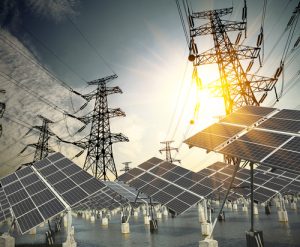
U.S. Rep. Tom Reed (R-NY) on Nov. 29 sponsored legislation that would provide investment and production tax credits for emerging energy technologies.
The Energy Sector Innovation Credit Act of 2018, H.R. 7196, would encourage the U.S. energy market to be more pioneering and technologically varied, according to Rep. Reed.
“The United States is falling behind in energy innovation because the size and the complexity of the energy market stymies American ingenuity and entrepreneurship,” Rep. Reed said last week.
H.R. 7196 would spur “cutting-edge energy technologies to break into the market, and it keeps government from picking winners and losers so all innovative, efficient-energy technologies can succeed,” the congressman added.
Original cosponsors of the bill are U.S. Reps. Darin LaHood (R-IL) and Erik Paulsen (R-MN), who joined Rep. Reed in introducing H.R. 7196 on Thursday.
According to a summary of the bill provided by Rep. Reed’s office, H.R. 7196 would set a tax credit worth as much as 30 percent for new technologies, energy storage and retrofits, as well as a tax credit worth 40 percent for a ‘first-of-a-kind’ technology.
The tax credits would be technology-neutral, meaning new technologies and advanced retrofits could access them, according to Reed’s summary.
Rep. Darin LaHood noted that such a “tech-neutral tax credit will incentivize innovation across the board for new energy technologies.”
“Facilitating the expansion of cutting-edge energy technologies into the marketplace in a fair and fiscally responsible way is aimed at providing a cheaper, more reliable energy portfolio,” he added. “This new incentive will strengthen our country’s economic competitiveness, as well as reinforce our leadership in global energy innovation.”
If enacted, H.R. 7196 also would ensure each tax credit is phased out over time to prevent taxpayers from buttressing unprofitable or inefficient energy technologies, according to a statement released by Rep. Reed’s office.
Additionally, the bill would reward efficiency because it would be applied only to the value of the energy when it’s sold, so that any unneeded power isn’t financially rewarded, according to the statement.
ClearPath Action Executive Director Rich Powell said the bill “would bring the energy portion of the tax code back to the essentials by helping cutting-edge technologies break into the market and upend the status quo without distorting the free market.”
“Congressman Reed’s bill will help clean energy sector innovation be more like Silicon Valley: fast, disruptive, exciting and good for consumers,” he said.
H.R. 7196 has been referred for consideration to the U.S. House Ways and Means Committee.



